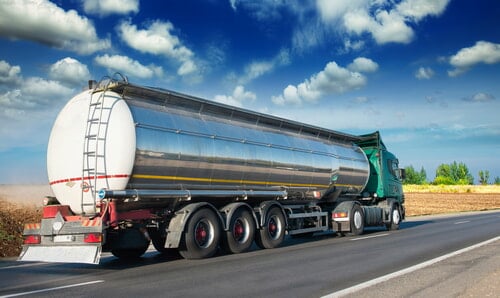Hand Tools

Pipeline, Transportation and Storage
Pipeline transportation and storage is a midstream industry that collects and moves natural gas, crude oil, slurry, and petroleum products. They transport these products from the producers to the refiners and end-users. Oil tankers might be trucks, trains, or on boats. Pipelines also transport products. After field gathering, the oil and gas are transferred by smaller pipelines of 8 inches in diameter or less to a central operating location, such as a treatment facility or processing plant. In the second step for moving oil and gas, the production is measured. This is the step where the oil, gas and water are separated, and impurities are removed.
The third step is to transport the processed oil and gas via pipelines, trucks, rail and barge, where it is stored in refinery tanks and holding tanks.
Midstream Occupations in the Pipeline, Transportation and Storage Industry
The pipeline, transportation and storage industry has several occupations that require personal protective equipment, including:
- Construction and extraction occupation workers perform physical labor, including transporting materials and repairing drilling equipment. They use impact gloves, chemical gloves, hard hats and hi-vis clothing.
- Control and valve installers and repair techs install, repair and maintain mechanical governors, including mechanical regulating and control devices. As part of the device maintenance, they lubricate mechanical parts. They also install electric meters. Personal protective equipment for these workers includes chemical gloves, fire-retardant clothing, and face and eye protection.
- Gas plant operators process and / or distribute gas with compressors that maintain specific pressures on main pipelines. They operate plant equipment, control the compressors, and monitor flammable products. Personal protective equipment includes face and eye protection, FR clothing, hi-vis clothing and safety gloves.
- Industrial installers install, repair and maintain machines. They also change parts and maintain the machines. Their jobs require that they work with cleaning solvents, metalworking fluids and oil. Chemical gloves, hi-vis clothing, waterproof clothing, and face and eye protection are just some of the personal protective equipment these workers need.
- Industrial machinery mechanics install, repair and adjust industrial machines used in the pipeline, transportation and storage industry. They might cut and weld metal to repair broken parts and work with chemicals. They benefit from having FR clothing, puncture-resistant gloves and face and eye protection.
- Material moving workers move materials across operations. They operate conveyors and machines. Hard hats and hi-vis clothing are just two of the types of personal protective equipment that can reduce the risk of injuries for these workers.
- Petroleum pump system operators operate the processing units or petroleum refining units. They regulate the flow of oil by opening valves, operate manifold and pumping systems, and monitor gauges.
- Pipelayers, pipefitters, plumbers and steamfitters assemble, install, repair and alter pipelines. They require hi-vis clothing, hard hats, and face and eye protection.
- Welders, solderers, cutters and brazers work with welding machines, torches, and brazing equipment. They might weld components above or below themselves. They can reduce the risk of injury by wearing FR clothing, hard hats, gloves, and face and eye protection.
Top Midstream Companies in the United States
The top midstream companies in the United States that are involved in pipelines, transporting and the storage of oil and gas products include:
- Koch Pipeline Company.
- Phillips 66.
- Enbridge.
- Kinder Morgan
- TransCanada.
- Enterprise Product Partners.
- Sunoco.
- Plains All American.
- Spectra Energy.
- Centurion Pipeline.
Occupational Hazards in the Midstream Industry
Some of the hazards of working in the midstream industry could cause catastrophic injuries or even death. Others could cause minor injuries that might cause you to lose work for a few days or a week. Hazards include:
- Handling abrasives, such as gravel and metal.
- Apply pesticides and herbicides.
- Removing asbestos and coal tar from pipes.
- Working with chemicals.
- Crush and impact injuries.
- Cutting and welding.
- Breathing in dust.
- The risk of fires and explosions.
- Heat stress. The cooling products Abolox carries can significantly reduce heat stress.
- Impaired vision.
- Inclement weather.
- Flash fires.
- Working around heat produced by machinery and / or ovens.
- Dropped objects.
- Spilled liquids, including chemicals.
- Pinching hand and fingers in chains and other equipment.
- “Pigging,” or cleaning pipes.
- Pipe maintenance.
- Working with sharp objects.
- Chemical spills.
- Vacuum excavating.
- Visibility issues.
Visit Abolox for Personal Protective Equipment
Whether you need to stock up on personal protective equipment for yourself or are purchasing for your employees, you’ll find what you need at Abolox. Visit Abolox today to order quality PPE that meets industry standards.